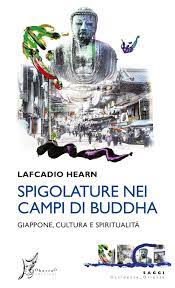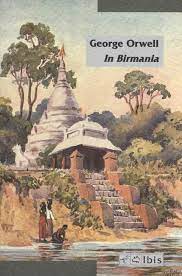A famous ballad by Rudyard Kipling opens with a prediction (“Oh, East is East, and/ West is West, and never/ The twain shall meet,”) which, in 1889, satisfied many white supremacists and colonialists. Too bad that they avoided going to read the rest of the poem: they would have found the “never” of the third line contradicted. Imagine if Kipling, born in Mumbai and an adventurous wanderer of the world, could have missed the complexity of the relationship between East and West, with the always possible crossings between the two semi-worlds, especially “When two strong men/ Stand face to face,”. In that case, for the poet “… there is neither East/ Nor West, Border, nor/ Breed, nor Birth, …”.
Inevitable to think back to the Scottish Nobel Prize, when you pick up two recently published books, which focus on the experience of the encounter with the East of the authors, both European by birth. The first, George Orwell, needs no introduction, except to recall that his In Burma, published by Ibis, contains two short stories (Shooting an Elephant, c. 1936; A Hanging, 1931) and the article How a Nation is Exploited (1929), which refer to the experience that the writer began in the Asian country just one hundred years ago, as a volunteer enlisted in the Imperial Police (he took up service in Mandalay on November 22, 1922). The writings give us an Orwell disgusted with colonialist claims on local populations, unable to fulfill the repressive tasks to which he was assigned. From humanitarian and socialist political convictions, but also from moral principles, he is driven to contest the system of power. He clearly rejected the injustices perpetrated by the Union Jack, in order to guarantee the British Isles resources for industries and strategic control of territories useful for the Asian ruling of the empire. But isn’t Britain the mother of contemporary democracies and Burma the expression of the notorious Asian despotism that Wittfogel a few decades later would explain to everyone? Let’s read how Orwell tells it in How a Nation is Exploited: “The government of all the Indian provinces under the control of the British Empire is of necessity despotic, because only the threat of force can subdue a population of several million subjects”. Roles reversed therefore, the Brits are despotic.
With this judgment in mind, it is topical to recall the debate that greeted the release of 1984, one of Orwell’s major works, in Italy. Togliatti, the alleged “best” intellectual as well as head of the Communists, called the book “a formless and boring buffoonery”. On another occasion, he will go further: “The author accumulates with the greatest diligence all the most stupid of the slanders that the current anti-communist propaganda hurls against the socialist countries.” Few will appreciate the book, all in the liberal arc and humanitarian socialism: Croce (“Orwell looked at the monster and did not lose heart”), the environment of Il Mondo di Pannunzio, Pampaloni on Il Ponte , Garosci.

Still opening up to the Far East, but on the religious and ethical side, Lafcadio Hearn (1850-1904), also known by the Japanese name of Koizumi Yakum, published in 1897 Gleanings in Buddha-Fields. Studies of Hand and Soul in the Far East, now published by the publisher ObarraO – the two O’s stand for East and West – with the title Spigolature nei campi di Buddha – Japan, culture and spirituality. Greek-Irish by birth, a journalist in the United States since he was 19, he was dispatched as a correspondent to the West Indies and three years later moved to Japan. Here he was accepted by a samurai family and married a girl, effectively becoming Japanese and Buddhist, while teaching English literature at the Imperial University of Tokyo. A singular but not unique path in the Euro-Asian affair. Author still esteemed and read in Japan, he puts his profound knowledge of the local culture in Spigolature, reverberating the aesthetic sensibility and spirituality he received from it. Buddhism as an ethic of living is the common thread through which he interprets folklore, and profound concepts such as karma, nirvana, reincarnation. The detailed account of the travels and ceremonies transmits live the life of the time, in the temples, gardens and streets of Kyoto and Ōsaka.

